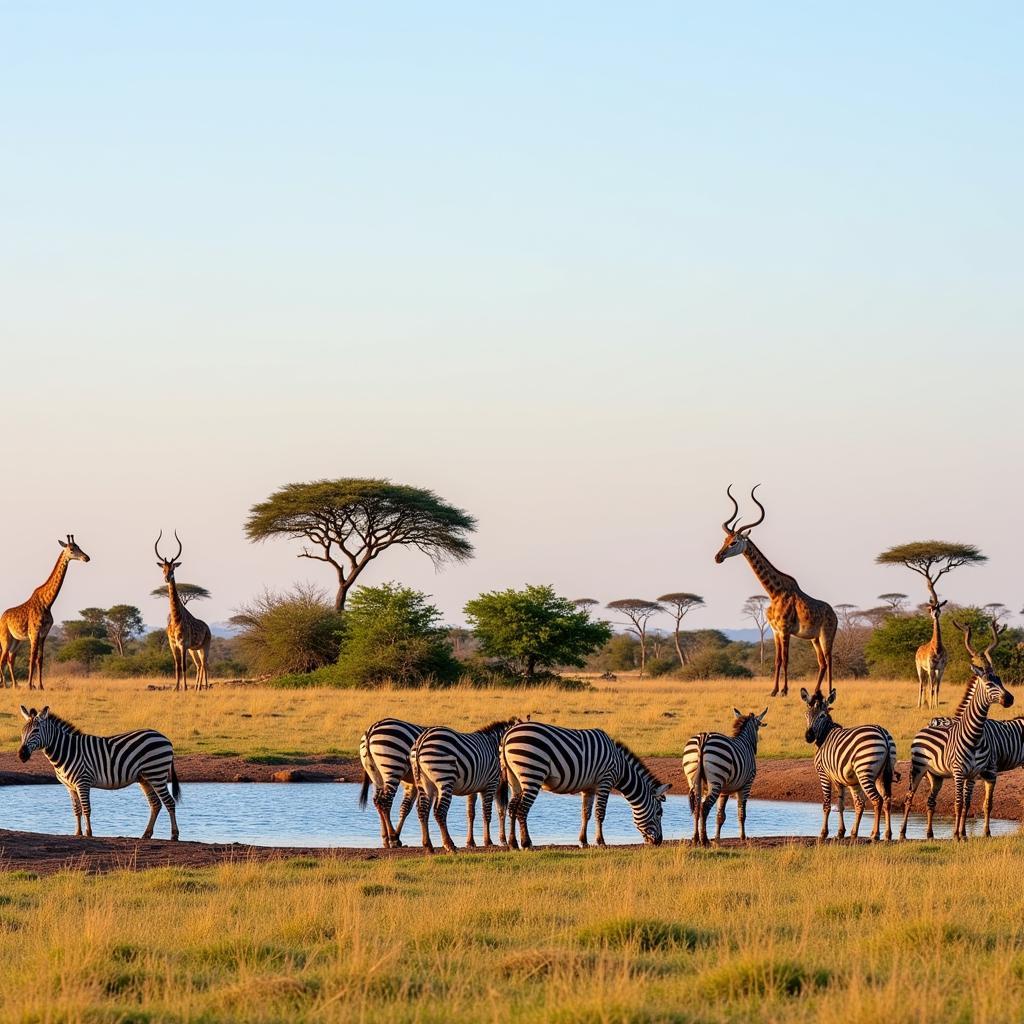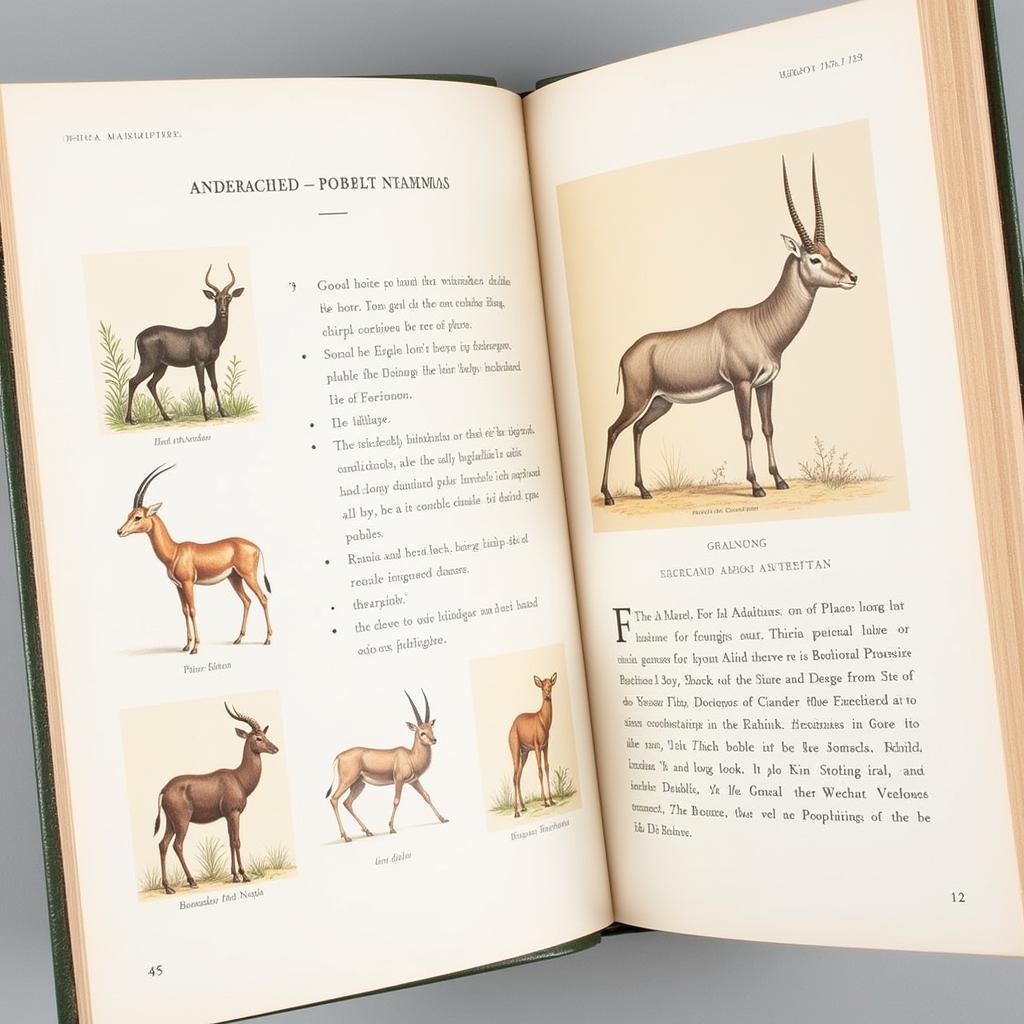The African Caribou: Unveiling the Myth
The African Caribou is a mythical creature, shrouded in intrigue. While the term itself may seem to point towards a specific animal, the reality is that caribou, as they are commonly known, are not native to the African continent. This often leads to confusion, especially for those unfamiliar with the diverse fauna of Africa.
Debunking the Myth: Why There Are No “African Caribou”
The term “caribou” itself originates from the North American indigenous languages, specifically the Mi’kmaq word “qalipu.” These magnificent animals, scientifically classified as Rangifer tarandus, are found in the Arctic and subarctic regions of North America, Europe, and Asia. They are known for their remarkable adaptations to cold climates and their importance in the cultures of indigenous peoples.
Africa, with its vastly different ecosystems, is home to a plethora of ungulates (hoofed mammals), but caribou are not among them. The confusion likely arises from a misunderstanding or misapplication of terminology. It’s possible that people unfamiliar with African wildlife might use “caribou” as a generic term for any large, antlered herbivore.
Exploring Africa’s Own: The Continent’s Diverse Ungulates
While Africa may not have caribou, it boasts an incredible array of ungulates that have evolved to thrive in its diverse habitats. From the savannas to the forests, these animals play a crucial role in maintaining the delicate balance of their ecosystems.
- Antelope: Africa is renowned for its remarkable diversity of antelope species. From the majestic eland, the largest of all antelopes, to the diminutive dik-dik, these animals occupy a wide range of ecological niches.
- Gazelle: Known for their incredible speed and grace, gazelles are a common sight on the African plains. Their keen senses and agility make them well-adapted to life in open grasslands.
- Buffalo: The African buffalo, with its imposing horns and powerful build, is a formidable presence. These social animals are known for their strength and resilience.
 Diverse African Ungulates
Diverse African Ungulates
These are just a few examples of the incredible diversity of ungulates found in Africa. Each species has its own unique adaptations, behaviors, and ecological role to play.
The Importance of Accurate Terminology
While the idea of an “African caribou” may be intriguing, it’s essential to use accurate terminology when discussing wildlife. This not only prevents misunderstandings but also promotes a greater appreciation for the diversity and uniqueness of different species.
“When we use the correct names for animals, we acknowledge their distinct evolutionary paths and ecological roles,” explains Dr. Anika Mosi, a wildlife biologist specializing in African mammals. “It helps us to understand and appreciate the incredible tapestry of life on our planet.”
 Field Guide to African Mammals
Field Guide to African Mammals
The next time you come across the term “African caribou,” remember that it’s a misnomer. Instead, let it be a reminder of the incredible diversity of ungulates that truly call Africa home.
Conclusion
While the “African caribou” remains a mythical creature, exploring the reality of Africa’s diverse ungulates reveals a world of wonder and fascination. By using accurate terminology and deepening our understanding of these animals, we can better appreciate the intricate web of life that thrives on this remarkable continent.

